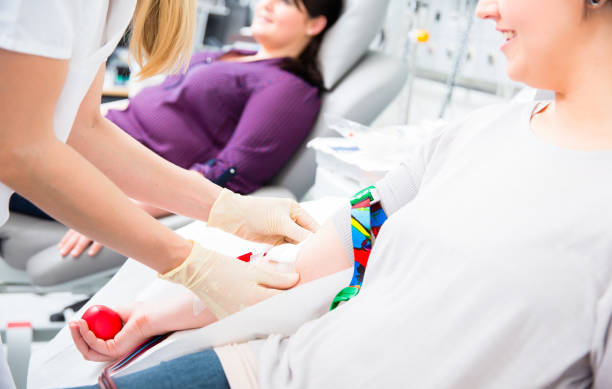Can People with Tattoos Donate Blood?
Tattoos have become increasingly popular over the years, with many people choosing to express their individuality and creativity through body art. However, there remains a significant amount of confusion and misinformation surrounding the eligibility of people with tattoos to donate blood. This article aims to provide a comprehensive and clear understanding of the policies and guidelines regarding blood donation for individuals with tattoos, debunking myths and addressing common concerns.
Understanding Blood Donation Eligibility
Blood donation is a critical activity that saves countless lives every day. Donated blood is used in various medical situations, including surgeries, trauma care, cancer treatment, and managing chronic illnesses. As such, maintaining a safe and sufficient blood supply is essential. Blood donation centers and organizations have established rigorous guidelines to ensure the safety of both donors and recipients.
The Myth: People with Tattoos Cannot Donate Blood
One of the most pervasive myths is that individuals with tattoos are automatically disqualified from donating blood. This misconception likely arises from concerns about potential infections and the introduction of foreign substances into the bloodstream through the tattooing process. However, this is not entirely accurate.
The Reality: Temporary Deferral Period
The truth is that people with tattoos can donate blood, but there are certain conditions and a deferral period that must be observed. Most blood donation organizations, including the American Red Cross and similar entities worldwide, have specific guidelines in place. Typically, there is a deferral period of 12 months from the date of the most recent tattoo. This waiting period is primarily a precautionary measure to ensure that any potential infections, such as hepatitis or other bloodborne diseases, have had sufficient time to manifest and be detected through screening.
Why the 12-Month Deferral Period?
The 12-month deferral period is based on the potential risk of bloodborne infections. When a person gets a tattoo, there is a possibility, albeit low, that unsterile equipment or improper techniques could lead to infections. The waiting period allows time for these infections to become detectable through routine blood screening processes. It is important to note that this deferral period applies not only to tattoos but also to other activities that pose similar risks, such as body piercings.
Variations in Guidelines
It is worth mentioning that guidelines for blood donation can vary between countries and even among different blood donation organizations within the same country. Some regions may have shorter deferral periods or different criteria based on their specific health regulations and the prevalence of certain diseases. Therefore, it is always advisable to check with the local blood donation center or organization for the most accurate and up-to-date information regarding eligibility.
Exceptions to the Rule
While the 12-month deferral period is standard, there are exceptions to this rule. For example, if the tattoo was done in a state-regulated facility that uses sterile needles and ink that has not been reused, the deferral period may be waived. This is because state-regulated facilities adhere to strict hygiene standards that significantly reduce the risk of infection. However, not all donation centers recognize this exception, so it is crucial to confirm with the specific organization where you intend to donate blood.
The Importance of Accurate Disclosure
When it comes to blood donation, honesty and accurate disclosure of one's medical and lifestyle history are vital. Blood donation centers rely on donors to provide truthful information about recent tattoos, piercings, and other activities that could affect the safety of the blood supply. Failing to disclose a recent tattoo could lead to the collection of potentially unsafe blood, posing a risk to recipients.
The Screening Process
Before donating blood, all potential donors undergo a screening process that includes a detailed questionnaire about their health and lifestyle. This process helps identify any factors that might temporarily or permanently disqualify someone from donating blood. Questions related to tattoos are a standard part of this screening. In addition to the questionnaire, a small sample of the donor's blood is usually tested for various infections, including hepatitis and HIV.
Addressing Common Concerns
Many people with tattoos express concerns about whether their body art will affect their ability to donate blood in the future. Here, we address some of the most common concerns:
- Will my tattoo affect my eligibility to donate blood forever?
No, having a tattoo does not permanently disqualify you from donating blood. The deferral period is temporary, and after it has elapsed, you can donate blood just like anyone else.
- Can I donate blood if my tattoo is very small or was done a long time ago?
The size of the tattoo does not matter; what is important is when it was done. If it has been more than 12 months since you got your tattoo, you are generally eligible to donate blood, provided you meet all other criteria.
- Does the location of my tattoo matter?
The location of the tattoo on your body does not impact your eligibility to donate blood. The key factor is the timing and the conditions under which the tattoo was done.
- What if I get a tattoo from a highly reputable and clean studio?
While getting a tattoo from a reputable studio reduces the risk of infection, the standard 12-month deferral period still applies in most cases. However, as mentioned earlier, some organizations may waive the deferral if the tattoo was done in a state-regulated facility.
Encouraging Responsible Tattoo Practices
For individuals who are considering getting a tattoo but also wish to donate blood, it is essential to choose a licensed and reputable tattoo studio that follows strict hygiene practices. Ensuring that the studio uses sterile equipment and fresh ink for each client can minimize the risk of infections. Additionally, discussing your intention to donate blood with the tattoo artist can help them understand the importance of maintaining the highest standards of cleanliness.
Promoting Blood Donation Awareness
Raising awareness about the possibility of donating blood even with tattoos is crucial. Many people are discouraged from donating due to the misconception that tattoos are a permanent barrier. Blood donation organizations and healthcare providers play a significant role in educating the public about the actual guidelines and encouraging eligible individuals to donate blood.
Conclusion: Tattoos and Blood Donation Can Coexist
In conclusion, having tattoos does not permanently disqualify individuals from donating blood. While there is a temporary deferral period of 12 months after getting a tattoo, this measure is in place to ensure the safety of the blood supply. By understanding and adhering to these guidelines, people with tattoos can still contribute to saving lives through blood donation. It is essential to stay informed, practice responsible tattooing, and always provide accurate information during the blood donation screening process. With proper awareness and adherence to guidelines, tattoos and blood donation can coexist, allowing individuals to continue expressing themselves through body art while making a valuable contribution to public health.




